Archives
Elisabete Martins
2013 elected RSAI Fellows
RSAI is pleased to announce the election of the following Fellows in 2013:
|
Roberta Capello, Polytechnic Milano, ITALY
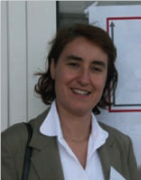 Roberta Capello is professor in Regional and urban economics at the Politecnico of Milan. Past-President of the Regional Science Association International (RSAI). Editor in chief of the Italian Journal of Regional Science and co-editor of Letters in Spatial and Resource Science (Springer Verlag). Editor in chief of Papers in Regional Science from RSAI. Author of many scientific papers and a textbook in Regional Economics, published in Italian and English. Roberta Capello is professor in Regional and urban economics at the Politecnico of Milan. Past-President of the Regional Science Association International (RSAI). Editor in chief of the Italian Journal of Regional Science and co-editor of Letters in Spatial and Resource Science (Springer Verlag). Editor in chief of Papers in Regional Science from RSAI. Author of many scientific papers and a textbook in Regional Economics, published in Italian and English. |
|
Kiyoshi Kobayashi, Kyoto University, JAPAN
|
|
Tönu Puu, University of Umeå, SWEDEN
|
|
Jean-Claude Thill, University of North Carolina at Charlotte, USA
|
History of the Regional Science Association of French Language published in 2012, by Prof. Antoine Bailly, Prof.Pierre-Henri Derycke and Prof. André Torre
Job Opportunity: Associate or Assistant Professor in Regional Economics, University of Missouri
The University of Missouri has an opening for an Associate or Assistant Professor in Regional Economics.
To access the job description: http://dass.missouri.edu/regionaljob/
If you have questions contact:
Judith I. Stallmann, Professor
Community Development Extension,
Agricultural and Applied Economics,
Rural Sociology and Public Affairs
231 Gentry Hall
University of Missouri-Columbia
Columbia, MO 65211-7040
573-882-6455
FAX: 573-882-5127
This email address is being protected from spambots. You need JavaScript enabled to view it.
Management and Economics Faculty, Economics Department, Full Time Academic Position
MANAGAMENT AND ECONOMICS FACULTY
ECONOMICS DEPARTMENT
FULL TIME ACADEMIC POSITION
The Universidad Católica del Norte (www.ucn.cl), Department of Economics is recruiting one assistant professor for researching and teaching activities.
We invite to apply those researchers interested on the fields of urban economics, regional economics, and economic geography or associated areas. The position requires a medium level of Spanish language. The applicant must 1) contribute to graduate-level teaching; 2) teach undergraduate courses; 3) ability to develop and maintain an externally funded research program; 4) ability to contribute to the department’s interdisciplinary mission.
It is expected that the candidate will be available to start working in August, 1st 2013.
Required qualifications: 1) a full curriculum vita, 2) a doctoral degree closely related to the fields above describe at the time of appointment, 3) letter of application describing research and teaching interests, 4) samples of writing or publications and 5) the names and contact details of two referees plus the recommendation letter
The deadline to send applications will be June 15th 2013. Any question about the application process must be sent to Dusan Paredes, Tel. 56 55 355746, This email address is being protected from spambots. You need JavaScript enabled to view it.This email address is being protected from spambots. You need JavaScript enabled to view it.
George I. Treyz, 76, died at his home in Amherst on Feb. 14, 2013
George I. Treyz (1936 - 2013)
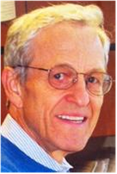 AMHERST - George I. Treyz, 76, died at his home in Amherst on Feb. 14, 2013. He is survived by his wife of 54 years, Sidney; his son Victor and daughter-in-law Susan of San Francisco; his son Frederick and daughter-in-law Enhua of Amherst; his brother Russell and sister-in-law Alice of New York; and six grandchildren, Claire, Henry, Peter, Eric, Justin and Athena.
AMHERST - George I. Treyz, 76, died at his home in Amherst on Feb. 14, 2013. He is survived by his wife of 54 years, Sidney; his son Victor and daughter-in-law Susan of San Francisco; his son Frederick and daughter-in-law Enhua of Amherst; his brother Russell and sister-in-law Alice of New York; and six grandchildren, Claire, Henry, Peter, Eric, Justin and Athena.George was devoted to his wife and family. He was an involved and loving father and took great joy in spending time with his children and grandchildren. He and Sidney enjoyed life-long friendships and travel. George enjoyed life to its fullest and had many interests including painting, gardening, cooking and outdoor activities.
Donations may be made to UMass Amherst Friends of the Libraries, For: George I Treyz Fund for Economic Reference Materials, Friends of the Libraries, UMass Amherst, W.E.B. Du Bois Library, 154 Hicks Way, Amherst, MA 01003-9275.
It is with great sadness that we announce the passing of António Simões Lopes, founder of Regional Science in Portugal
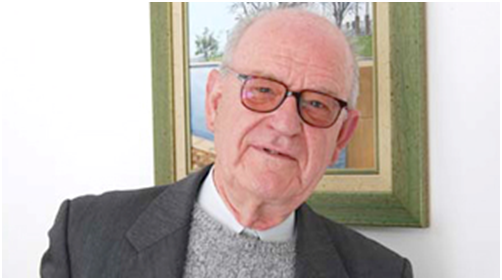 It is with great sadness that we announce the passing of António Simões Lopes, founder of Regional Science in Portugal, dean of the Technical University of Lisbon, first chairperson of the Association of Economists, and president of the Council of Deans of Portuguese Universities.
It is with great sadness that we announce the passing of António Simões Lopes, founder of Regional Science in Portugal, dean of the Technical University of Lisbon, first chairperson of the Association of Economists, and president of the Council of Deans of Portuguese Universities.
Simoes Lopes, who was a professor at the Higher Institute of Economics and Management (ISEG), was researcher at the Centre for Economics and Finance from Gulbenkian Institute of Science, and integrated several international research teams in areas of Regional Development and Urban Development.
Doctorate in Economics by Oxford University, received doctorate honoris cause from the Universities of Kent, UK, Federal do Maranhao, Brazil, Algarve and Coimbra.
He was also honoured in France with the degree of Knight of the Order of Merit. And in Portugal, with the Grand Cross of the Order of Public Instruction and the Grand Cross of the Order of Prince Henry.
He was researcher at the Center for Urban and Regional Research of ISEG.
It is with great sadness that we announce that Stan Czamanski passed away at the age of 94
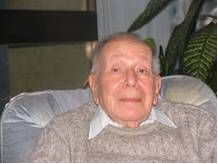 Our colleague, Stan Czamanski, died recently. He was President of the Regional Science Association in 1975-76. He was a professor emeritus of city planning and regional science at Cornell University. Stan was a world expert in economic and industrial development. He served as deputy director of UNDP for Asia, as advisor to a variety of governments, including Iran, Brazil and Canada. He led the preparation of and participated in a multitude of urban and regional development plans. His book on Regional Science Techniques in Practice is considered a classic. He was the first to formulate the concept of competitive industrial complexes.
Our colleague, Stan Czamanski, died recently. He was President of the Regional Science Association in 1975-76. He was a professor emeritus of city planning and regional science at Cornell University. Stan was a world expert in economic and industrial development. He served as deputy director of UNDP for Asia, as advisor to a variety of governments, including Iran, Brazil and Canada. He led the preparation of and participated in a multitude of urban and regional development plans. His book on Regional Science Techniques in Practice is considered a classic. He was the first to formulate the concept of competitive industrial complexes.
It is with great sadness that we announce the passing of Mark S. Henry
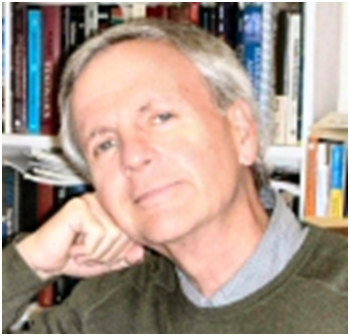 Our colleague, Mark Henry, recently passed away. He was professor emeritus at Clemson University, South Carolina, where he worked most of his career. He was a Research Fellow at the Rural Development Research Consortium, University of California-Berkeley, from 2003-2006. He was elected Fellow of the Southern Regional Science Association in 2004, and he received the David E. Boyce Award for Distinguished Service to the Field of Regional Science in 2000. He served a a Councilor of the North American Regional Science Council. Other services include: President, Southern Regional Science Association, 1990-91, Executive Director and Secretary-Treasurer of Southern Regional Science Association, 1980-89, and Board of Editors of the Review of Regional Studies, 1992-current, Papers in Regional Science 2001- 2010; Growth and Change, 2005. Mark developed an extensive body of research in Regional Economics, particularly in economic impact analysis, economic development, rural-urban linkages and income distribution issues. Mark published extensive nationally and internationally and was a regular attendees of regional conferences.
Our colleague, Mark Henry, recently passed away. He was professor emeritus at Clemson University, South Carolina, where he worked most of his career. He was a Research Fellow at the Rural Development Research Consortium, University of California-Berkeley, from 2003-2006. He was elected Fellow of the Southern Regional Science Association in 2004, and he received the David E. Boyce Award for Distinguished Service to the Field of Regional Science in 2000. He served a a Councilor of the North American Regional Science Council. Other services include: President, Southern Regional Science Association, 1990-91, Executive Director and Secretary-Treasurer of Southern Regional Science Association, 1980-89, and Board of Editors of the Review of Regional Studies, 1992-current, Papers in Regional Science 2001- 2010; Growth and Change, 2005. Mark developed an extensive body of research in Regional Economics, particularly in economic impact analysis, economic development, rural-urban linkages and income distribution issues. Mark published extensive nationally and internationally and was a regular attendees of regional conferences.
Professor John Quigley, after a long illness, died on Saturday, May 12, 2012
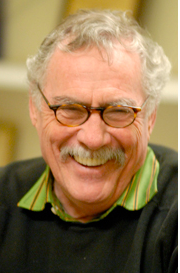 "John Quigley was an extraordinarily distinguished academic, a great mentor for his students, and an untiring contributor to the Goldman School and the University of California. In just the past three years he published 22 articles. Since 1990 he has been a member of an astounding 84 PhD Committees and he chaired 26 of them. In just the past two months, even though he was on leave and quite ill, he was actively helping the school in its recruiting efforts. Personally, John had exceptionally high standards for himself, and he helped make all of us better through his example and his generosity. As Dean, on several occasions, he helped me solve very difficult problems by offering his wise counsel and by jumping in to help solve them. John epitomized all that is best in academia: path-breaking scholarship, rigorous standards, mentorship for students, and unceasing service to the institution. He is irreplaceable."
"John Quigley was an extraordinarily distinguished academic, a great mentor for his students, and an untiring contributor to the Goldman School and the University of California. In just the past three years he published 22 articles. Since 1990 he has been a member of an astounding 84 PhD Committees and he chaired 26 of them. In just the past two months, even though he was on leave and quite ill, he was actively helping the school in its recruiting efforts. Personally, John had exceptionally high standards for himself, and he helped make all of us better through his example and his generosity. As Dean, on several occasions, he helped me solve very difficult problems by offering his wise counsel and by jumping in to help solve them. John epitomized all that is best in academia: path-breaking scholarship, rigorous standards, mentorship for students, and unceasing service to the institution. He is irreplaceable."
Henry E. Brady; Dean, Goldman School of Public Policy; University of California Berkeley
A memorial event for John's family, friends, students, and colleagues will be held on the Berkeley campus on the afternoon of June 9. As plans are made, details will be posted at: http://gspp.berkeley.edu/news-events/quigleyObit.html
Cards for Mary Curran (John's wife) can be sent to the attention of Megan Land in at:
Dr. JOSE LUIS CECENIA GAMEZ died on the 3rd of January 2012
A SAD NEWS (once more) FROM THE MEXICAN ASSOCIATION, AMECIDER.
On the 3rd of January 2012 a highly distinguished and much appreciated member of our Association, Dr. JOSE LUIS CECENIA GAMEZ, after 96 years of a life plenty of human and professional achievements, passed away. Professor Cecenia –whom several of you knew personally- was the key figure in laying the foundations of our Association. He not only invited 20 persons to formally establish it, but was elected by them as its first President, in 1994. Ever since, he was appointed for life as its Honorary President.
He was particularly keen in endowing it with a mature and legal statute and with its main objectives and courses of action. But he also strove to jealously keeping its independency in regard to political and economic negative influences. He will be always remembered for bestowing on our country a solid scientific association.
We invite all of you who witnessed his wholehearted friendship and entire commitment to the cause of regional science, to join us in our mourning, and to help us achieve in fullness his legacy. MAY HE REST IN PEACE.
About Us
The Regional Science Association International (RSAI), founded in 1954, is an international community of scholars interested in the regional impacts of national or global processes of economic and social change.

 Kobayashi is the recipient of several awards and prizes for his research including the Hinomaru Prize in 1988, the JSCE (Japan Society of Civil Engineers) Research Prize in 1993, 2001 and 2007. In 2007 he was included in the Top 50 City Creators and Urban Experts of the Ministry of the Environment of Denmark. From 1978-1986, Kobayashi was a Research Associate in Graduate School of Engineering of Kyoto University. In 1987 he became an Associate Professor at the Department of Social Systems Engineering at Tottori University, where in 1990 he became a full time Professor. In 1996 he returned to Kyoto University as a full time Professor at the Graduate School of Engineering. In 2007 he became the Vice Dean of the Graduate School of Management of Kyoto University and in 2009 he became the Dean.
Kobayashi is the recipient of several awards and prizes for his research including the Hinomaru Prize in 1988, the JSCE (Japan Society of Civil Engineers) Research Prize in 1993, 2001 and 2007. In 2007 he was included in the Top 50 City Creators and Urban Experts of the Ministry of the Environment of Denmark. From 1978-1986, Kobayashi was a Research Associate in Graduate School of Engineering of Kyoto University. In 1987 he became an Associate Professor at the Department of Social Systems Engineering at Tottori University, where in 1990 he became a full time Professor. In 1996 he returned to Kyoto University as a full time Professor at the Graduate School of Engineering. In 2007 he became the Vice Dean of the Graduate School of Management of Kyoto University and in 2009 he became the Dean.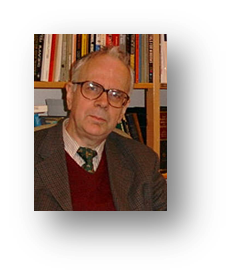 Tönu Puu, born in 1936 in Tallinn, was Professor of Economics at Umeå University from 1971 to 2001. Afterwards he worked at the Centre for Regional Studies (Cerum) for ten years. In total, he has published twenty books and 130 scholarly articles in economics, mathematics and philosophy.
Tönu Puu, born in 1936 in Tallinn, was Professor of Economics at Umeå University from 1971 to 2001. Afterwards he worked at the Centre for Regional Studies (Cerum) for ten years. In total, he has published twenty books and 130 scholarly articles in economics, mathematics and philosophy. Jean-Claude is Professor of Public Policy, University of North Carolina at Charlotte, USA. He has previously held positions at SUNY - Buffalo, the University of Georgia, Florida Atlantic University and the Université Catholique de Louvain in Belgium. He has also served NARSC superbly for many years in many administrative capacities. His research has centered on the spatial dimension of mobility systems and their consequences on how space is used and organized in modern societies; statistical and computational methods of spatial analysis; and most recently urban land-use dynamics.
Jean-Claude is Professor of Public Policy, University of North Carolina at Charlotte, USA. He has previously held positions at SUNY - Buffalo, the University of Georgia, Florida Atlantic University and the Université Catholique de Louvain in Belgium. He has also served NARSC superbly for many years in many administrative capacities. His research has centered on the spatial dimension of mobility systems and their consequences on how space is used and organized in modern societies; statistical and computational methods of spatial analysis; and most recently urban land-use dynamics.